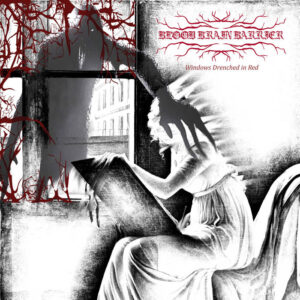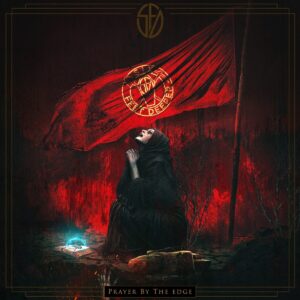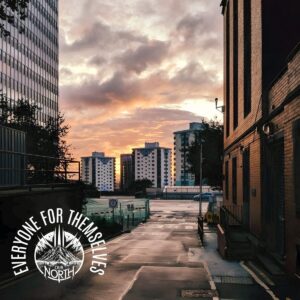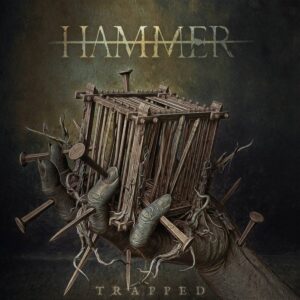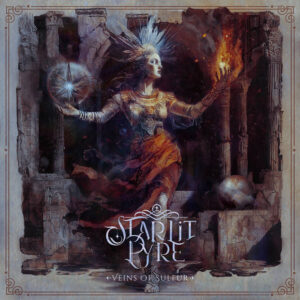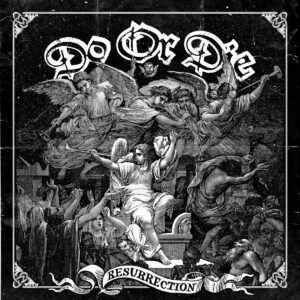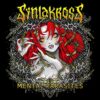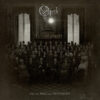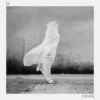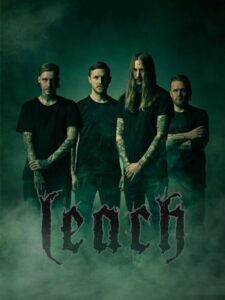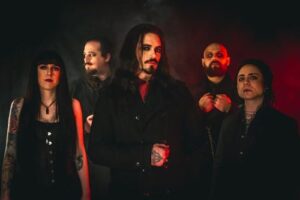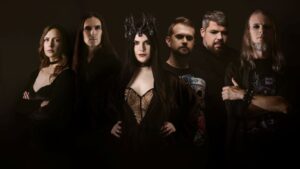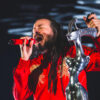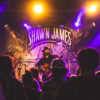Tuomas Saukkonen
Wolfheart
Their stellar fifth album, "Wolves of Karelia," dives fully into their exploration of the little-known Winter War of 1939-1940. It comes hard on the heels of the equally brilliant "Constellation of the Black Light" (2018) and "Tyhjyys" (2017). Mastermind Tuomas Saukkonen, the band's singer, guitarist, and songwriter, spoke about the album in an email interview; the questions and answers follow:

•
April 17, 2020
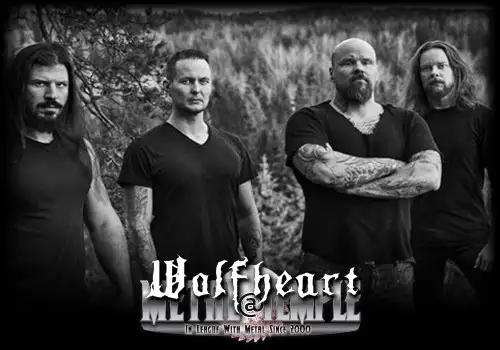
Actually, this Winter War theme has been coming up with every Wolfheart album so far. The debut album, "Winterborn," has a song called "Ghosts of Karelia" about that war, "Shadow World" has "Defender," etc, etc. I was born and spent my childhood in the Karelian region, so that area and its history is very dear to me.
I would call it a concept album. All the lyrics are based on the stories and interviews of the veterans. I wanted to avoid the "SABATON style," where a song is kind of like a documentary of a certain battle, even, (or a) soldier of a certain war. I wanted to focus more how a normal human, a farmer, felt and reacted in those cruel and violent months.
It is not my place to become a politician or a teacher. I am just an artist, and music, like any other art, should also be open for interpretation instead of being a lesson. History will always repeat itself anyway. There is always ours, or the next generation, to make the same mistakes.
That is a very Finnish thing – to show great perseverance and will of mind, sometimes being really stubborn also! That whole mindset was clearly very strong for that past generation, but sadly, I must say I don't see it that much in our generation anymore. If the past generation was the wolves, most of the current generations seem to be just teddy bears.
There (are) two kinds of fire, the flame within and the other one you light on fire. Both (are) equally inspiring, (e)specially during the Second World War. Finnish men and women had both of those flames burning really bright, but many of the actual fires were also (in) the villages, farms, (and) towns when we (were) under heavy bombings. War is fire.
Strings really underline the mood and create a movie soundtrack kind of layer. It comes pretty naturally while writing the song or during the final mixing to hear where strings would be needed. (The) song has to carry a story, too, and it needs ups and downs and certain highlights in the mood.
There is a point that we should see each other as brothers, but that is not the way of mankind. It's more like stating that it is an "eye (for) an eye" kind of situation – if you attack our countrymen and brothers, we will give you hell to pay. Finland was part of Russia, but we never spoke Russian (or) adapted much from their culture.
It was part of guerrilla warfare, when small groups went on skis to either scout the enemy movements or do small attacks/sabotage/damage behind the enemy lines. Sometimes it meant skiing for over 15 miles in freezing temperatures, but that was the safest way – move silently and avoid daylight.
I just love to play acoustic instruments in general. With those, you can really hear the touch and the dynamics of the player. It is more honest that way. With the instrumental, I wanted to create a musical "eye of the storm," so that the whole album would not be blast beats and growling – (I wanted to) make similar moments like actual battles have, when (the) cannons and guns stop for a while before the next wave hits the frontlines.
That is correct. It was brutal conditions to Finns too, but being out in nature in freezing temperatures was nothing new, so we had the upper hand. The terrain was very difficult for big army trucks, and once you managed to stop a convoy of trucks, tanks, and soldiers, they were facing two enemies in the middle of nowhere – Nature and the Finnish army.
Actually, that set of lyrics is based (on a) few similar stories from the veterans who felt like they were murderers and how the war made them like that. They knew that it was kill or be killed – and it was war, where each man had to do what they had to do – but they still carried that burden to (their) grave, knowing that they had taken (the) lives of others. Other soldiers were there because they were told to do so, just following orders. It is about the mental sacrifice of losing (a) certain innocence and purity.
There was one story that inspired me a lot. One soldier saw his best friend wounded in the trench(es) when they were at the war; (they were) just 19. They had to retreat, and that was the last time he saw him and he never knew what happened to him. There (are) still (a) few search parties that go across the border every summer to find the remains of the veterans, and (at) the age of 90, this veteran got the news that his friend's remains were found just in the place he remembered – still sitting in the corner of the remains of the trench. That is where the line "We bring them home" comes from.
Musically. Of course the theme is heavy, but (it's) nothing new in our songs. It is the fastest album overall we have done, and my drummer (Joonas Kauppinen) can confirm because this time we went on his absolute limits.
Vagelis is already a permanent member – that deal was closed before the end of 2019. We toured the whole last summer with him when he was still the session guy, and that was a perfect test to see if the chemistry will work. And it worked perfectly. We needed a European guitarist since we play 75 percent of our gigs in Europe/Scandinavia. Vagelis has also toured multiple times in the U.S. and Europe (during his) seven years in ROTTING CHRIST, so he brings a lot of experience.
Actually, DoS was the only band I did not stop; it was buried by a shitty label back in 2007. DoS is the only project that I was forced to stop. It was not really on the planning board until I partly accidentally made demos of the songs "Lead Wings" and "Ashes" when I was supposed to work with new WOLFHEART material. When those songs popped up, I knew that they were DoS songs. The new album, "Waves" is at once worlds apart from WOLFHEART and at once recognizable. The music is less dense, more straightforward, and of course, it has the clean vocals.
I am a huge fan of Mikko´s voice. We did four BLACK SUN AEON albums together – (he's a) great artist and friend – so it was awesome to get him to sing the songs. I specifically wanted to keep my voice out (of) the album. My voice could not bring anything to this mood that DoS has. There's no aggression in DoS, mainly sadness. Clean vocals tell the stories of the lyrics so much better and deeper. Mikko has such a mournful voice – he is simply the best vocalist for the job. And any singer is better than me because I wanted to push somebody else into the spotlight!
As with most tours this spring, WOLFHEART'S "Devastation on the Nation" tour of the U.S. and Canada – led by ROTTING CHRIST and also featuring BORKNAGAR, ABIGAIL WILLIAMS, and IMPERIAL TRIUMPHANT – was cancelled and moved to Feb. 11-March 12, 2021, and will follow the same route. In the meantime, fans were also encouraged to buy tickets to a virtual gig the band released on April 9; over $15,000 has been raised so far.
"We now just wait (to see) what will happen with summer festivals and are we able to get back to touring in September/October when our planned European headlining tour should take place," he said. "We already received really good support from the fans with the virtual gig, so now we just wait (to see) what happens. We will figure out (how) to manage the situation."
More results...
